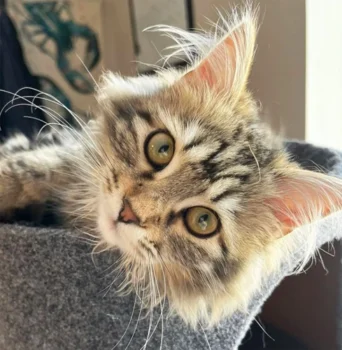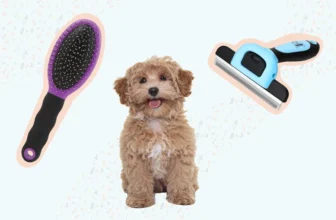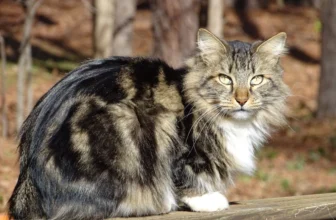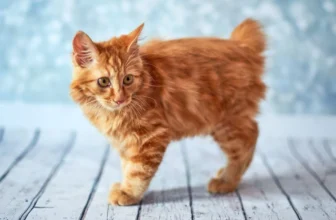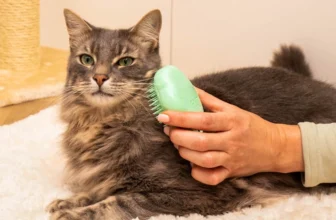As cat owners, we all want to ensure the health and happiness of our feline friends. However, it’s easy to overlook the importance of dental hygiene. In particular, American Bobtails can be prone to dental problems that, if left untreated, can lead to pain, infection, and even tooth loss. But fear not! By learning about the signs of dental issues, knowing what to do if your cat experiences them, and taking preventative measures to keep your pet healthy, you can help ensure that your American Bobtail enjoys a long and happy life.
Why Dental Health is Important for American Bobtails
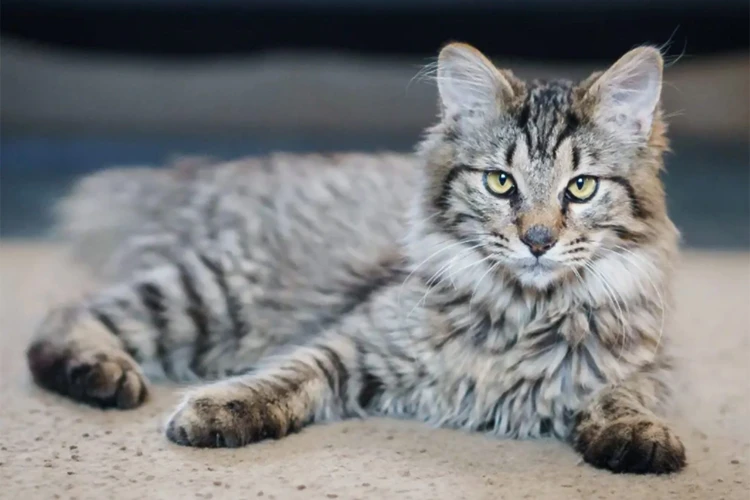
Maintaining good dental health is crucial for American Bobtails. These adorable felines are prone to several dental issues such as gum disease, tartar buildup, and tooth decay. Neglecting their dental health can result in severe problems later in life, which can ultimately impact their overall health and wellbeing. In fact, dental problems can lead to a variety of other issues, such as kidney disease and heart disease, in cats. It is essential to understand why dental health is important and how to take preventive measures to maintain a healthy smile for your American Bobtail.
Preventative Care
One of the main reasons why dental health is important for American Bobtails is the preventative care it provides. Keeping your cat’s teeth clean and healthy can help prevent dental issues before they arise. Regular brushing and cleaning of your American Bobtail’s teeth can help remove food particles and other debris that can contribute to tartar buildup and tooth decay. Additionally, preventative care can help avoid costly and painful dental treatments in the future.
Pain and Infection Prevention
Another reason why dental health is vital for American Bobtails is the prevention of pain and infection. Dental problems such as gingivitis and periodontitis can be incredibly uncomfortable for cats and can also cause infections that can spread throughout their body. Regular dental care for your American Bobtail can help prevent these painful and potentially dangerous situations from occurring.
It’s clear that maintaining your American Bobtail’s dental health is crucial for their overall health and wellbeing. By taking proactive measures such as regular brushing, feeding a healthy diet, and scheduling routine dental check-ups, you can ensure that your furry friend has a healthy smile and a healthy life. For more tips on dental care for American Bobtails, check out our article on American Bobtail Dental Health Tips or take a look at our recommended dental care products for American Bobtails.
Preventative Care
Taking care of your American Bobtail’s dental health is essential for their overall well-being. Preventive care can help avoid dental problems and keep your feline friend’s teeth and gums healthy. While regular veterinary checkups and professional dental cleanings are important, there are several things you can do at home to help maintain your cat’s oral health. One of the most effective measures is to establish a consistent oral hygiene routine that includes regular brushing of your cat’s teeth. Check out our article on how to brush your American Bobtail’s teeth for more tips and tricks. In addition to brushing, there are other steps you can take to promote good dental care for your American Bobtail, including using dental care products designed specifically for cats, and following a proper feline diet. By taking these steps, you can help prevent common dental problems and keep your furry friend healthy and happy.
Pain and Infection Prevention
Dental problems in American Bobtails can cause more than just bad breath and difficulty eating, they can lead to pain and infection as well. Ignoring your cat’s dental health can result in serious issues such as tooth decay and gum disease, which can lead to infection and abscesses. These problems can cause your cat severe pain, which can make eating and even grooming more difficult.
Preventing pain and infection is crucial for the overall health and well-being of your American Bobtail cat. Here are a few ways to do that:
- Regular dental check-ups: Regular dental check-ups can help prevent dental problems from developing into painful conditions.
- Early intervention: If you notice any of the signs of dental problems in your cat, such as bad breath, bleeding gums or difficulty eating, don’t ignore them. Early intervention can save your cat from experiencing unnecessary pain and discomfort.
- Professional dental cleanings: Professional dental cleanings can help remove built-up plaque and tartar, which can cause infection and decay in your cat’s teeth and gums.
- Following the appropriate oral hygiene routine: Following a consistent oral hygiene routine for your cat can reduce the likelihood of developing infections or other dental problems.
By understanding and recognizing the signs of dental problems in your American Bobtail, you can take steps to prevent pain and infection. If you notice that your cat is experiencing any of the symptoms listed in the sign section, it’s important to visit the vet as soon as possible. With regular check-ups and preventive oral care, your cat can have healthy teeth and gums for years to come. For more dental health tips for American Bobtails, consult with your veterinarian.
Signs of Dental Problems
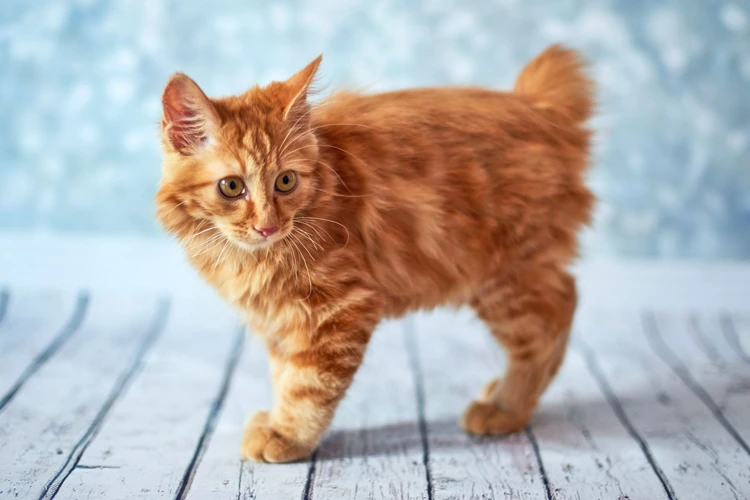
When it comes to American Bobcats, dental problems can be a real concern. It’s essential to understand the signs of dental issues in your cat and take action if you suspect a problem. Here are some of the things to keep an eye out for.
Bad Breath
If your American Bobtail’s breath smells offensive, it’s a sign that there’s likely an issue with their dental health. Bad breath could indicate the presence of bacteria or an infection in your cat’s mouth. Although a certain amount of odor is normal, a pungent smell that persists despite brushing could be a warning sign.
Drooling
Drooling is typically not something that cats do unless there is a problem. Excessive drooling could be a sign of an oral health issue, such as periodontal disease or an abscessed tooth. If you notice your American Bobtail drooling more than usual, it’s essential to seek veterinary care.
Reduced Appetite
If your American Bobtail is experiencing dental pain, they might lose their appetite, making it challenging to maintain a healthy weight. If you notice that your cat is no longer interested in their food or attempting to eat but doing so with difficulty, have a vet examine them.
Trouble Chewing
Do you observe your American Bobtail having trouble eating or avoiding hard or crunchy foods that they used to enjoy? They might be experiencing dental pain or discomfort. Have their mouth and teeth checked by your vet if you notice any changes in eating habits.
Dental problems in American Bobtails cannot go untreated. It is crucial to address the issue promptly before it leads to more complex problems.
Bad Breath
Have you noticed your American Bobtail’s breath smelling a little off? It’s natural to be curious about the cause of the smell, and bad breath in cats can be indicative of dental problems. A foul smell coming from your cat’s mouth could be a sign that something is wrong. However, the smell alone is not a definitive indicator of dental disease. So, what should you look for to determine if your cat’s bad breath is a result of dental problems? Let’s dive in and explore the signs to look out for.
Drooling
One of the signs that your American Bobtail may be experiencing dental problems is excessive drooling. If you notice your cat drooling more than usual, it may indicate that they have an issue in their mouth. Here are some potential causes of drooling in cats and how you can address them:
| Potential Causes | What to Do |
|---|---|
| Oral Pain | If your cat is drooling and seems to be in pain when they eat or yawn, it may be due to dental issues such as gum disease or a broken tooth. Bring them to the vet for an examination and treatment. |
| Nausea | Drooling can also be a sign of nausea, especially if your cat is also vomiting or has diarrhea. Again, a visit to the vet may be necessary to determine the underlying cause and provide treatment. |
| Toxicity | In rare cases, drooling may be a sign that your cat has ingested something toxic. Check your home for potential hazards and bring your cat to the vet immediately if you suspect poisoning. |
| Anxiety | Sometimes, cats may drool excessively due to stress or anxiety. If you believe this to be the case, try to identify and alleviate the source of stress in your cat’s environment. |
As with all dental problems, it is important to address drooling in your American Bobtail as soon as possible to prevent further complications. Keep an eye out for any changes in your cat’s behavior, such as excessive drooling, and consult with your vet if you have any concerns.
Reduced Appetite
One of the signs of dental problems in American Bobtails is a reduced appetite. If your cat is experiencing dental pain, they may avoid eating or only eat a small amount because the act of chewing is uncomfortable. It’s important to monitor your cat’s eating habits and look out for any changes. If you notice a decrease in appetite, it’s important to investigate the issue further.
Some common causes of reduced appetite in American Bobtails with dental problems include:
- Tooth Decay: If your cat has severe tooth decay, they may be experiencing pain when they try to chew. This can lead to a decrease in appetite and potentially cause other health problems.
- Gum Disease: Gum disease is a common problem in cats and can cause inflammation and discomfort in the mouth. This can make it difficult for your cat to eat and may cause them to lose interest in food.
- Broken Teeth: Broken or chipped teeth can cause pain and sensitivity, making it difficult for your cat to eat. If you suspect that your cat has a broken tooth, it’s important to get it addressed by a veterinarian as soon as possible.
If you notice that your American Bobtail is not eating or is only eating small amounts, it’s important to take action. A reduced appetite can quickly lead to other health problems if left untreated. Schedule an appointment with your veterinarian to explore possible underlying dental problems causing your cat’s reduced appetite.
Trouble Chewing
Trouble chewing is another sign that your American Bobtail might be experiencing dental problems. Cats with dental issues may have difficulty eating, particularly harder or larger pieces of food. They may even drop food from their mouths or cry out while eating. To determine if your cat is experiencing difficulty eating, observe their eating patterns and inspect their mouth for any abnormalities. This may include redness and inflammation, bleeding gums, loose or missing teeth, or oral lesions.
To further understand the severity of your cat’s dental problem, you can create a contrast between the typical behaviors of felines and those of cats with dental problems. For instance, while cats might beg for food, when they’re having trouble chewing, they might avoid their food altogether or only eat a small amount. It is important to pay attention and look for these signs, as leaving dental problems untreated can lead to malnourishment, weakness, and other serious health complications.
Dental Problem|Signs and Symptoms
:–|:–
Gingivitis|Swollen or red gums, bad breath, bleeding gums, reluctance to eat
Periodontitis|Tooth mobility, swollen gums, discharge, difficult eating
Tooth Resorption|Loose or missing teeth, difficulty eating, inflamed gums
Oral Infections|Sensitivity to the touch, pain, fever, bad breath
If you notice any of these signs, it is crucial to bring your cat to the veterinarian as soon as possible to address the issue. The vet will be able to identify the source of the problem and recommend the best course of action to alleviate your cat’s pain and prevent further damage. In some cases, your cat may require a dental cleaning or extraction.
It is important to remember that dental health is a key aspect of your American Bobtail’s overall wellbeing. By keeping an eye out for signs of trouble chewing and other dental problems, you can take necessary steps to ensure your cat’s teeth and gums stay healthy and happy.
What to Do If Your American Bobtail Has Dental Problems
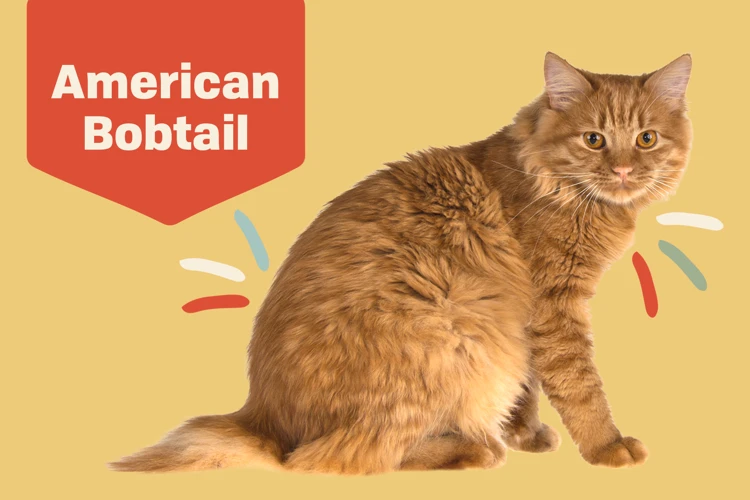
If you notice any of the previously mentioned signs of dental problems in your American Bobtail, it is crucial to take action immediately. Here are some steps you can take to help address your cat’s dental problems:
Visit the Vet: The first thing you should do is take your American Bobtail to a veterinarian for a thorough dental examination. Only a trained professional can accurately diagnose and treat dental problems in cats. Your vet may also recommend a dental cleaning or x-rays to further assess the extent of the issue.
Oral Hygiene Routine: Your vet may also recommend an oral hygiene routine to help maintain your cat’s dental health. This may include brushing your cat’s teeth, using dental chews or treats, or utilizing an oral rinse. Make sure to follow your vet’s instructions closely and be consistent with the routine to ensure maximum effectiveness.
Watch for Recurring Problems: It is possible for dental problems to recur, even after appropriate treatment. It is crucial to carefully watch your cat and look for any recurring issues. If you notice any signs of dental problems, even after treatment, be sure to contact your vet as soon as possible.
It is essential to take proactive steps towards maintaining your American Bobtail’s dental health. Dental problems are not only uncomfortable and painful for your cat but can also lead to more severe health issues in the future. It is crucial to take any signs of dental problems seriously and take appropriate action immediately.
Visit the Vet
When it comes to your American Bobtail’s dental health, it’s always better to be safe than sorry. If you notice any signs of dental problems, it’s important to take action and seek help from a veterinarian. A professional vet will be able to assess your cat’s teeth and gums and determine if any further action needs to be taken. Neglecting dental issues can lead to more serious problems down the line, including infections and pain that can affect your pet’s overall health and wellbeing. So, if you suspect that there may be a problem, don’t hesitate to schedule a visit to the vet.
Oral Hygiene Routine
Maintaining a proper oral hygiene routine is crucial for the dental health of your American Bobtail. Regular oral care can help prevent many dental problems from occurring and detect any underlying issues early on. Here are some steps to follow in maintaining an oral hygiene routine for your American Bobtail:
| Step | Description |
|---|---|
| Step 1: | Brush your cat’s teeth Brushing your American Bobtail’s teeth regularly can help prevent plaque buildup and reduce the chances of dental problems. Use a toothbrush and toothpaste specifically designed for cats, and make sure to brush gently and gradually increase the time each day until your cat is comfortable with the process. |
| Step 2: | Pet-friendly teeth cleaning toys You can also use pet-friendly teeth cleaning toys to help reduce plaque buildup and maintain your cat’s oral hygiene. These toys are designed to clean your cat’s teeth as they play with them. |
| Step 3: | Mouth rinses and water additives Mouth rinses and water additives can be used to reduce plaque buildup and freshen your cat’s breath. These products are designed specifically for cats and can be added to their drinking water. |
| Step 4: | Dental check-ups Regular dental check-ups with the vet is crucial to maintaining your cat’s oral health. Your vet can detect any dental problems early on and provide appropriate treatment. |
By following these steps, you can ensure that your American Bobtail has good oral health and avoid potential dental problems. Remember, an oral hygiene routine is a small investment that can go a long way in preventing future dental problems and keeping your cat healthy and happy.
Watch for Recurring Problems
It’s important to keep an eye out for recurring dental problems in your American Bobtail. Even after receiving treatment, dental issues can resurface if not properly addressed. Here are some steps you can take to monitor your cat’s dental health:
- Regular Check-Ups: Continue taking your American Bobtail to routine dental check-ups with your vet. This will ensure that any recurring problems are caught early on and addressed promptly.
- Observe Regular Behaviors: Keep an eye out for recurring behaviors that may signal a dental problem, such as drooling or reduced appetite. These could signify an ongoing issue that needs attention.
- Maintain Oral Hygiene: Stay committed to maintaining your cat’s oral hygiene routine. This includes regular brushing, dental chews, and appropriate diet to help prevent dental issues from recurring.
- Watch for Specific Symptoms: Be aware of specific symptoms that may indicate a recurring dental problem, such as bleeding gums or loose teeth. If you notice any of these symptoms, take your cat to the vet as soon as possible.
By following these steps, you can help prevent dental problems from recurring in your American Bobtail. However, it’s important to remember that each cat is unique and may require different levels of dental care. Working with your vet to develop an individualized hygiene routine is the best way to keep your cat’s teeth healthy and prevent recurring problems.
How to Prevent Dental Problems in Your American Bobtail
One of the best ways to keep your American Bobtail’s dental health in check is to focus on prevention. Incorporating a few simple guidelines into your cat’s daily routine can help ensure that they have a healthy and happy smile for years to come.
Brush Your Cat’s Teeth
Just like humans, cats can benefit from regular dental hygiene. Brushing your American Bobtail’s teeth may seem like a daunting task, but with some patience and practice, it can become a seamless part of your cat’s routine. Use a specialized toothbrush and toothpaste made explicitly for cats, and avoid using human toothpaste, which can be harmful to felines. Start by introducing your cat to the toothbrush and toothpaste, allowing them to sniff and taste it familiarizes themselves with the new smells and textures. As your cat becomes more comfortable, begin brushing their teeth gently, focusing on the gum line and the back teeth where plaque is most likely to accumulate.
Dietary Considerations
What your American Bobtail eats can also have a significant impact on their dental health. Feeding your cat a diet that is high in carbohydrates and low in protein can contribute to the formation of plaque and tartar. On the other hand, incorporating crunchy dry food or treats into your cat’s diet can help to scrape away plaque, promote healthy gums, and improve dental health. Additionally, offering your cat dental chews or toys can also be beneficial.
Watch for Changes in Behavior
Your American Bobtail’s behavior can be an indicator of their overall health, including their dental well-being. Keep an eye out for any changes in behavior, such as avoiding eating certain foods or showing sensitivity when touched near the mouth. If you notice any of these changes, it may be an indication of the need for dental care.
Incorporating preventative measures into your American Bobtail’s daily routine can significantly reduce the likelihood of developing dental problems. By brushing their teeth, offering a balanced diet, and monitoring their behavior, you can help to ensure that your cat has a healthy and beautiful smile for years to come.
Brush Your Cat’s Teeth
Ensuring the dental health of your American Bobtail is crucial for their overall wellbeing. One of the most effective ways to prevent dental problems in your furry friend is by brushing their teeth. Although it may sound like a daunting task, with a little patience and the right tools, you can make it a regular part of your cat’s oral hygiene routine. In this section, we will discuss the importance of brushing your cat’s teeth and provide you with some helpful tips to get started. So, let’s dive in and explore how to make brushing your American Bobtail’s teeth a stress-free and positive experience.
Dietary Considerations
When it comes to preventing dental problems in American Bobtails, dietary considerations play a crucial role. Here are some things to keep in mind:
- Choose Dental-Specific Cat Food: Many brands offer dry cat food specifically designed to promote dental health. These foods are designed to have a texture and size that encourages chewing, which can help clean teeth and remove plaque. Look for brands that have the Veterinary Oral Health Council (VOHC) seal of approval.
- Limit High-Carb Foods: Carbohydrates, especially those found in dry kibble, can stick to teeth and create a breeding ground for bacteria. Be mindful of the amount of carbs your cat is consuming, and consider switching to wet food or a raw diet.
- Provide Dental Chews: There are a variety of dental chews on the market that can help promote dental health, from flavored treats to rawhide alternatives. Be sure to read labels carefully to ensure the ingredients are safe for your cat.
- Offer Raw Bones: Raw bones, like chicken or turkey wings, can provide a natural way for your cat to clean their teeth. Be sure to supervise your cat when they’re chewing on bones, and only provide them on occasion to prevent tooth damage.
- Consider Supplements: Some supplements, like dental-specific probiotics or enzymes, can promote healthy bacteria in your cat’s mouth and help break down plaque.
Keep in mind that dietary changes alone may not completely prevent dental problems in American Bobtails, but they can play an important role in reducing the severity of issues that do arise. Be sure to discuss any dietary changes with your veterinarian to ensure they are appropriate for your cat’s specific needs.
Watch for Changes in Behavior
Observing changes in behavior is an important aspect of maintaining your American Bobtail’s dental health. A sudden shift in behavior can indicate that something is wrong with your cat’s teeth, and it may be time for a dental checkup. Here are some behaviors to watch out for:
- Decreased Appetite: A reduced appetite may indicate pain while eating or discomfort while chewing. If your cat avoids hard or crunchy foods, they may have dental issues.
- Excessive Drooling: Too much drooling may indicate that your cat has loose or painful teeth, or that there is an infection present in their mouth. Check their mouth for signs of swollen gums, redness, or inflammation.
- Pawing at the Mouth: If your cat frequently paws at their mouth, it could be another sign of pain or discomfort. Try to look closely at their teeth and gums, and see if they react negatively when you touch their mouth area.
- Unusual Aggression: If your typically friendly and relaxed cat becomes unexpectedly aggressive or irritable, it may indicate that they are in pain or discomfort. A dental issue could be the source of the behavior change.
By keeping an eye out for changes in your American Bobtail’s behavior, you can help catch potential dental problems before they become more serious. Remember to schedule regular dental checkups with your veterinarian and maintain good oral hygiene practices to ensure your cat’s overall dental health.
Conclusion
After reading this article, we hope that you have gained a better understanding of the importance of dental health for American Bobtails. As loving pet owners, it is important to take proactive steps to ensure your cat’s dental health is maintained.
Regular dental check-ups and oral hygiene routines are essential in preventing dental problems, such as periodontitis and tooth decay. Additionally, it is important to recognize the signs of dental problems in your American Bobtail, including bad breath, drooling, reduced appetite, and trouble chewing.
If your American Bobtail experiences any of these symptoms, it is crucial to visit the vet and establish an oral hygiene routine that includes brushing their teeth and watching out for recurring issues.
By taking these preventative measures and watching for changes in your cat’s behavior, you can help prevent dental problems and maintain their overall health and well-being. Remember, good dental health is essential to your American Bobtail’s overall happiness and quality of life.
So, take the necessary steps to ensure that your American Bobtail’s teeth and gums are healthy, and enjoy the loving companionship of your furry friend for years to come.
Frequently Asked Questions
What causes dental problems in American Bobtails?
Dental problems in American Bobtails can be caused by a variety of factors, including poor oral hygiene, dietary factors, and genetics.
Can dental problems lead to other health issues for American Bobtails?
Yes, dental problems can lead to other health issues for American Bobtails, including infections, abscesses, and even heart or kidney disease.
How can I tell if my American Bobtail is experiencing dental problems?
Look out for signs of bad breath, drooling, reduced appetite, and trouble chewing. Other signs may include swollen or bleeding gums, loose or missing teeth, and changes in behavior.
What kind of oral hygiene routine should I establish for my American Bobtail?
You should establish a routine of brushing your cat’s teeth regularly, as well as using dental chews and oral rinses approved by your veterinarian.
Is it necessary to take my American Bobtail for regular dental check-ups?
Yes, regular dental check-ups with your veterinarian are important in maintaining your American Bobtail’s oral health and preventing potential problems.
What kind of diet should I feed my American Bobtail to promote good dental health?
A diet rich in high-quality protein and low in carbohydrates and sugars can help promote good dental health for American Bobtails.
Can dental problems in American Bobtails be prevented?
Yes, practicing good oral hygiene at home and scheduling regular dental check-ups with your veterinarian can help prevent dental problems in American Bobtails.
Is it normal for my American Bobtail to reject brushing their teeth?
Yes, it is normal for some cats to resist having their teeth brushed. You can work with your veterinarian to find alternative oral hygiene methods that work best for your cat.
How can I make brushing my American Bobtail’s teeth less stressful?
You can make brushing your cat’s teeth less stressful by introducing it gradually, using positive reinforcement, and making it a part of a daily routine.
What should I do if my American Bobtail refuses to eat due to dental problems?
If your American Bobtail is refusing to eat due to dental problems, it is important to take them to the veterinarian as soon as possible for treatment.

